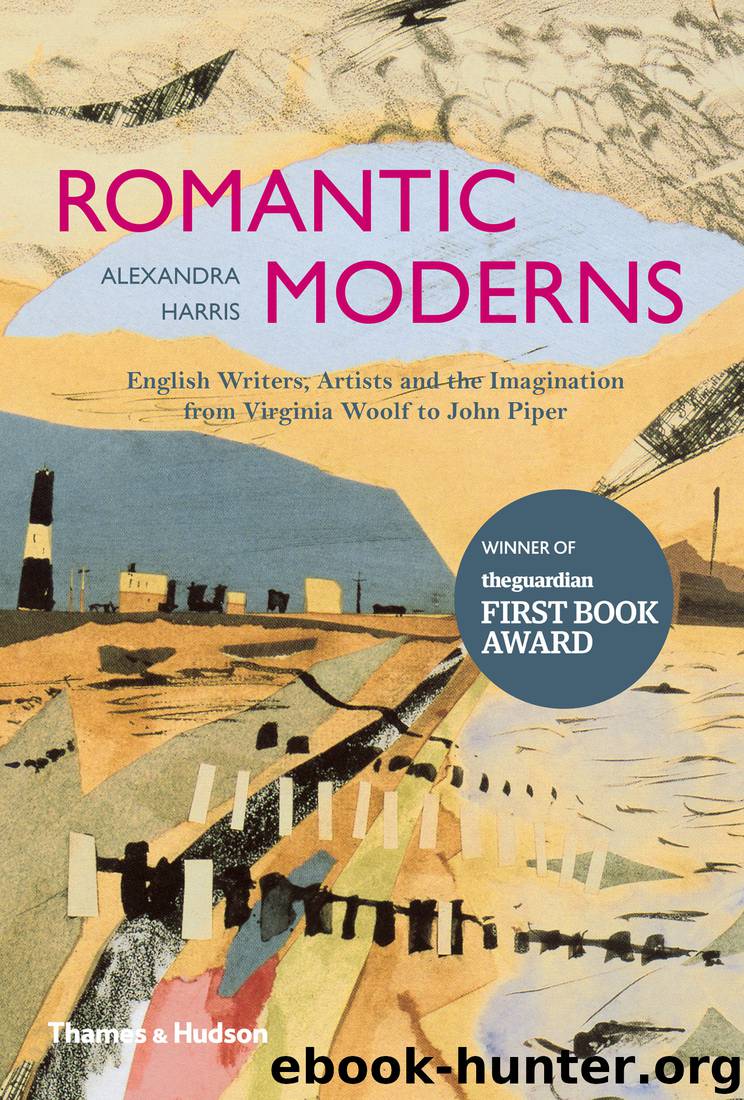Romantic Moderns by Alexandra Harris

Author:Alexandra Harris [Harris, Alexandra]
Language: eng
Format: epub
Publisher: Thames & Hudson
Published: 2010-05-05T23:00:00+00:00
Nineteen-thirties culture pastorally reconvened the lost personalities of the village. In Bernard Leach we find the artist as potter, in Hennell the artist as carpenter. In T. S. Eliot we find the poet as farmer, or at least as a champion of agriculture. The extent of Eliot’s interest in farming is not always acknowledged, but it was a significant part of his intellectual life. While many other writers settled for rural elegies, Eliot campaigned for rural resurrection. As a publisher at Faber he built up a distinguished list of writers whose work dealt with specialized subjects such as husbandry and soil improvement, but who were also making public appeals for help in their attempts to curb the relentless decline of British farming. Eliot wanted a wider audience for these ideas, so he used the editorial pages in his journal, the Criterion, to comment provocatively on rural matters. Conceiving culture and agriculture as mutually dependent, he understood the degradation of one to be disastrous for the other. The urbanization of the ruling and literary classes was a kind of standardization that signalled the degeneracy of a whole society. Farming must be renewed if English culture was to stand a chance:
To have the right frame of mind it is not enough that we should read Wordsworth, tramp the countryside with a book of British Birds and a cake of chocolate in a ruck-sack, or even own a country estate: it is necessary that the greater part of the population, of all classes (so long as we have classes) should be settled in the country and dependent upon it.35
He had done his research and was absolutely serious. England’s most prominent poet was advocating a vast, co-ordinated return to the soil.
Eliot was corresponding regularly with the Hampshire farmer Viscount Lymington, a radically right-wing agriculturist who had become a friend. Lymington led a group called the English Array (using the word in its archaic sense to mean a battle formation), which rallied a kind of medieval militia in the cause of the soil, and condoned Hitler’s analogous fight for the pure soil of Germany. Eliot admitted to Lymington that he had very little practical knowledge of agricultural work, but he emphasized his long-standing concern about the decline of English farming.36 What he got from Lymington in return was a rush of blood-and-soil rhetoric, hymning the rootedness of the racial ‘family’. Dangerous politics were at work in the fields. Lymington was out to revive what he called ‘Merry England’, though it was a dubious kind of merriness that the anti-Semitic and eugenically-minded aristocrat conceived.37
There was keen interest, from a number of different camps, in the renewal of merriness. The Kindred of the Kibbo Kift, a youth movement formed in opposition to the Scouts, wore handmade Saxon hoods and adopted ancient dialect names as they assembled for ceremonial camping and hiking activities. Robin Hood modified his views on the distribution of wealth and became a domesticated Little Englander championed by Georgian poets. J. C. Squire’s 1928 play Robin Hood, for example, made the outlaw a pillar of the establishment.
Download
This site does not store any files on its server. We only index and link to content provided by other sites. Please contact the content providers to delete copyright contents if any and email us, we'll remove relevant links or contents immediately.
| Ancient & Classical | Arthurian Romance |
| Beat Generation | Feminist |
| Gothic & Romantic | LGBT |
| Medieval | Modern |
| Modernism | Postmodernism |
| Renaissance | Shakespeare |
| Surrealism | Victorian |
4 3 2 1: A Novel by Paul Auster(12392)
The handmaid's tale by Margaret Atwood(7763)
Giovanni's Room by James Baldwin(7346)
Asking the Right Questions: A Guide to Critical Thinking by M. Neil Browne & Stuart M. Keeley(5775)
Big Magic: Creative Living Beyond Fear by Elizabeth Gilbert(5771)
Ego Is the Enemy by Ryan Holiday(5448)
The Body: A Guide for Occupants by Bill Bryson(5096)
On Writing A Memoir of the Craft by Stephen King(4944)
Ken Follett - World without end by Ken Follett(4732)
Adulting by Kelly Williams Brown(4574)
Bluets by Maggie Nelson(4556)
Eat That Frog! by Brian Tracy(4540)
Guilty Pleasures by Laurell K Hamilton(4449)
The Poetry of Pablo Neruda by Pablo Neruda(4108)
Alive: The Story of the Andes Survivors by Piers Paul Read(4033)
White Noise - A Novel by Don DeLillo(4010)
Fingerprints of the Gods by Graham Hancock(4004)
The Book of Joy by Dalai Lama(3986)
The Bookshop by Penelope Fitzgerald(3853)
